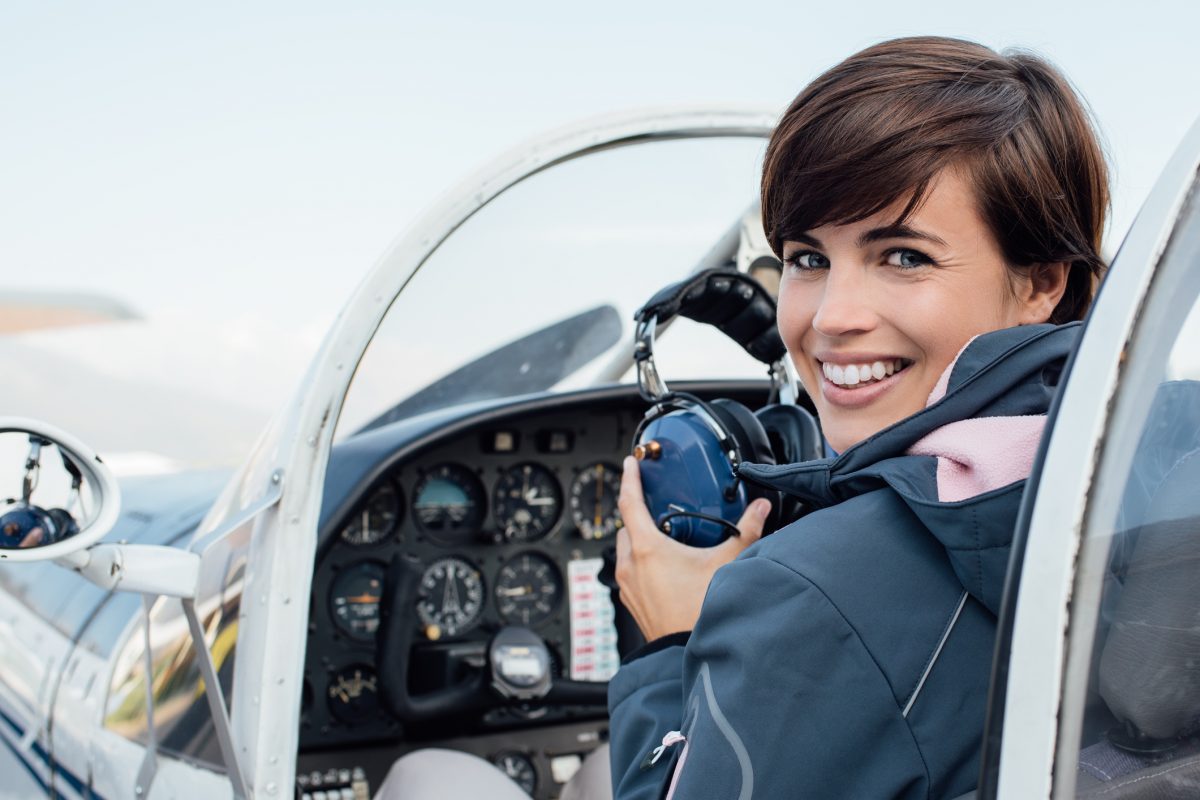
In the early days of aviation, flying was far more dangerous than it is today. Pilots needed a training tool to mimic the sensation of flight so they could practice instrument skills from the safety of the ground. Enter the flight simulator. In 1927, pilot and flight instructor Ed Link invented the world’s first practical flight simulator, the Link Trainer. The trainer replicated a complete cockpit, allowing pilots to gain valuable experience without facing the risk of injury or death.
Since the invention of the Link Trainer, flight simulation technologies have evolved tremendously. Today’s flight simulators are highly realistic and range from full-motion enclosed devices to smartphone apps to immersive virtual reality options. With so many opportunities to learn, practice, and strengthen flying skills safely and economically, there’s never been a better time to use flight simulation tools. Here are some great reasons to take advantage of flight simulation:
Enhance training
Modern flight simulators make it possible for pilots to learn both basic and advanced skills. Most student pilots use flight simulation to enhance their flying lessons, but experienced pilots can benefit from simulation training, too. Today’s modern flight simulators now offer customized options to augment training for different types of aircraft and ratings. For example, Redbird Flight Simulations recently developed a new full-motion training device equipped with amphibious Wipaire floats designed to address the unique training requirements for floatplane pilots.
Maintain proficiency
Great pilots know the value of proficiency. Maintaining a high level of proficiency will strengthen your skills, reduce safety risks, and ultimately help you become a better pilot. Flight simulators provide a cost-effective way for pilots to practice both routine and rarely-used skills. With simulator training, you can refine your skills in a variety of different flight scenarios that can be tailored to your specific goals.
Practice ATC communication
Learning the fundamentals of radio communication can be intimidating for student pilots, and even veteran pilots may sometimes struggle to keep up with the fast pace of ATC communication. Luckily, there are many simulation options available to help pilots practice proper radio technique and master the ATC communication skills needed for safe flying.
Improve navigation skills
Simulation can also help pilots improve and enhance both VFR and IFR navigation skills. If you’re planning a cross-country trip or flying to an unfamiliar airport, you can use a simulator to practice flying the route ahead of time. Simulators can also make it easier to practice entering and executing instrument procedures using onboard navigational devices and equipment.
Mitigate risk
One of the most significant benefits of using flight simulation is the ability to practice handling in-flight emergencies and risky situations without the threat of any true danger. In a simulated flight, you have the freedom to make mistakes that might be impossible to survive in the “real world.” Using simulation to practice identifying, assessing, and mitigating risk will help you learn how to avoid dangerous situations in the first place. Overall, flight simulation is a valuable way to practice dealing with emergency procedures in a low-stress environment.
Whether it’s used to learn something new, maintain proficiency, or practice emergency procedures, flight simulation is a powerful tool for pilots of all experience levels. Best of all, simulation training can be fun! On days when you can’t get into the air, flight simulation is an effective and affordable way to sharpen your skills, enhance safety, and enjoy flying without ever leaving the ground.